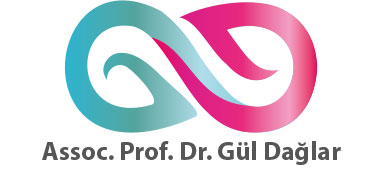As a result of the examinations and tests done to me I have diagnosed with ……………………. hernia. My doctor recommended …………………………hernia repair surgery for my treatment. I was informed about the necessity of surgery and the problems that may develop if I do not receive treatment. It was explained that this operation would be performed by the team of ……………………………… and the procedure would take approximately ………………hrs/minutes.
The following risks and possible dangers related to this surgery were explained to me:
What are the risks and complications of general anesthesia? Serious problems are rare in modern anesthesia. There is no risk, but anesthesia has become safer in recent years, thanks to modern equipment, training and medications. The risk varies depending on your other diseases, your personal characteristics (such as smoking, being overweight), or how complicated the surgery is, whether it is performed under emergency conditions or not. Very common and common side effects (in 1/10 or 1/100 people): weakness, post-operative vomiting, sore throat, dizziness, itching, backache, pain due to drug injections, confusion, memory loss)
Less common side effects and complications: (1/1000): Chest infection, bladder problems, muscle aches, slow breathing (respiratory depression), tooth, tongue, lip damage, awakening and awareness during surgery, cervical vertebra (neck spine) ) fracture and dislocation, rupture of the trachea or bronchus, leakage of gastric contents into the lungs, bronchospasm, laryngospasm (difficulty in breathing), vocal cord paralysis (paralysis of the vocal cords).
Very rare complications (1/10000 or 1/100000): eye damage, serious drug allergy, nerve damage, malignant hyperthermia, death.
Regional (regional) anesthesia Regional anesthesia is applied in two ways as epidural and spinal anesthesia. There is a difference between the two in terms of technique and where the drug is applied. For regional anesthesia, a local anesthetic drug is injected into a group of nerve roots in the spine and that area becomes numb. In addition, the abdominal muscles relax with the effect of the drug, so the related surgery can be performed. Sometimes regional anesthesia (often epidural anesthesia) is also used to reduce post-operative pain, especially after general anesthesia for major surgeries.
What are the complications that may develop after regional anesthesia?
* Painful injection,
* Backache, Headache, Hypotension,
* Difficulty in urination,
* Respiratory distress, Nausea and vomiting,
* Temporary or permanent nerve damage,
* Allergy to local anesthetics,
* High spinal anesthesia, meningitis
What are the benefits of this process? It provides complete relief of complaints such as pain and swelling present in the patient.
What are the consequences of not performing this procedure? The existing hernia may become larger or a life-threatening condition called hernia strangulation may occur.
What are the alternatives to this process? Hernia surgery can be performed with the laparoscopic method.
What are the risks and complications of the surgery? Undesirable complications such as vessel, nerve, bowel and bladder injury, wound infection, skin scarring and deformity that may develop due to the surgery to be performed, rarely carry the risk of bleeding, other organ failure or death. I know that allergic reactions due to the drugs used and tissue reactions due to the synthetic materials (mesh and sutures) used can develop and there are risks. I was informed that necessary interventions could be made for other pathologies (eg Colon diverticulum, cyst….) to be detected during my surgery.
(Only for female patients) If I am pregnant, I have been informed that my unborn child carries a risk during examination/medical intervention/treatment/surgery and anesthesia procedures, primarily radiological procedures. I do not have a missed period or pregnancy.
PATIENT’S CONSENT
I was given the above detailed information about my disease and the planned intervention, and the possible complications and risks were fully explained. I was informed that if these develop, treatments, including surgery, may be required, but in some cases, complete cure or recovery cannot be achieved. I accept the implementation of the above-mentioned intervention and other additional interventions that may be required as a medical necessity during the intervention.
to this section;
The statement “I READ, I UNDERSTOOD, I GOT A COPY” written in the patient’s or Legal Representative’s own handwriting will be written..……………………………………………………………………………………..……………………
TO BE FILLED BY THE PATIENT:
Date of Consent:……………………………Time :………………………………………………
Signature:…………………………………………………………………………………………
Patient’s (guardian or guardian for restricted and minors) Name and surname:……………………………
TO BE FILLED BY THE DOCTOR INFORMING THE PATIENT AND TAKING THE PATIENT’S CONSENT:
Title, Name and Surname of the Physician Receiving Consent:…………………………………………………..
Signature:……………………………………………………………………………………………
TAKING MEDICAL INTERVENTION
Name Surname Title:………………………………………Signature:………………………………………………………

